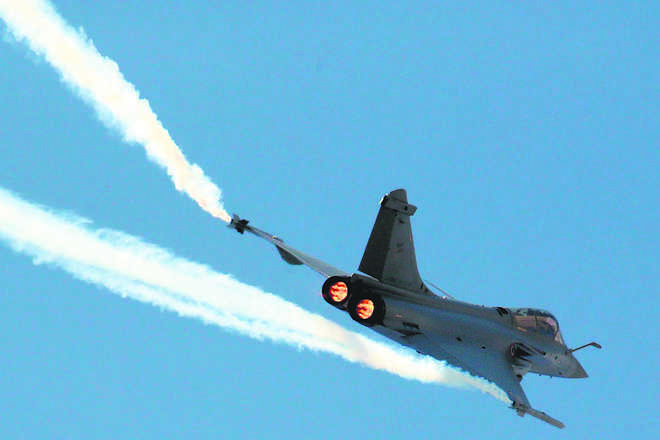
Satish Chandra
Former Deputy National Security Adviser and member, VIF executive committee
BY attacking the government on issues on which it deserved to be commended, the Opposition has undermined its own credibility. Among such criticisms is one directed at the Rafale deal designed to address our critical shortage of fighter aircraft which the UPAhad failed to do.
Background of Rafale deal
To objectively assess the validity of this criticism, the following needs to be noted:
1 In August, 2007, the UPA government issued a Request for Proposal (RFP) for acquisition of 126 Medium Multi Role Combat Aircraft (MMRCA) entailing import of 18 and local manufacture of 108 by Hindustan Aeronautics Limited (HAL). The RFP wasdeficient as the weaponry, radar etc specified were the most basic.
2 In 2012, Dassault Aviation, the manufacturer of Rafale, was announced as the lowest bidder, but the UPA could not bring the negotiations for contract finalisation to fruition. This was due to Dassault Aviation's reluctance to take responsibility for HAL's manufacture of the 108 aircraft as required under the RFP and due to a huge mismatch between the two about the manhours required for local manufacture which had a bearing on pricing.
3 The BJP government was unable to prevail upon Dassault on these two issues, making impossible the finalisation of the MMRCA deal as originally conceived. So, the government had to choose between opting for a fresh tender and obtaining the already selected Rafale through an alternative arrangement. Since the former would have led to delays with adverse security ramifications, the second option was taken, entailing import of 36 Rafale aircraft to meet our requirements.
Counter-points for criticism
The Rafale deal negotiated by the BJP has been criticised on the grounds that it was costlier than the one concluded by the UPA, that it entailed no technology transfer, that there was no role for HAL and a private sector company would stand to benefit, and that it had no CCS approval.
1 However, firstly, it is erroneous to suggest that the UPA had "concluded" a deal with Dassault. The fact is that negotiations by the UPA with Dassault progressed at a snail's pace and no contract was finalised.
2 Secondly, due CCS approval had been obtained for concluding the Rafale deal prior to PM's visit to Paris in April, 2015, when it was announced.
3 Thirdly, a price comparison between the deal under negotiation by the UPA and the one finally concluded by the BJP is like comparing apples to oranges as the two were quite different. The former was for 126 aircraft, of which 18 were to be imported and 108 to be locally assembled and the latter was for outright import of 36 aircraft. Further, the BJP contracted deal envisaged a much more sophisticated Rafale than that contemplated by the UPA in terms of weaponry and 13 India-specific enhancement capabilities not supplied to any other country. Additionally, it obtained better terms for performance-based logistic support as well as guarantees that a minimum of 75 per cent of the fleet would always be available for operations.
Though an accurate price comparison is not possible between the two contracts due to their variance in nature and in deliverables, services etc, an approximation is possible from the figures provided in noted security analyst Nitin Gokhale's recent book titled Securing India the Modi Way. The book reveals that the Ministry of Defence benchmarked cost of acquisition of 126 Rafales in 2011 was Rs 1,63,403 crore. By extrapolation, the per unit cost of a Rafale to be contracted for by the UPA comes to about Rs 1280 crore. As against this, the book pegs the per unit cost of the basic Rafael under the BJP concluded contract at Rs 688 crore. Given the size of the deal under consideration by the UPA government, the per unit cost of aircraft should not have been higher than that concluded by the BJP government. Indeed, it should have been substantially lower due to economies of scale and local assembly.
4 Finally, it is incorrect to suggest that the contract involves no technology transfer. This will inevitably occur through offsets. Under our defence procurement policy, Dassault is free to choose any Indian company, public or private, as its offset partner. Given the differences between Dassault and HAL which stymied the conclusion of the MMRCA deal for 126 Rafales, the former may opt for another Indian partner or partners. This should be of no concern to us.



























